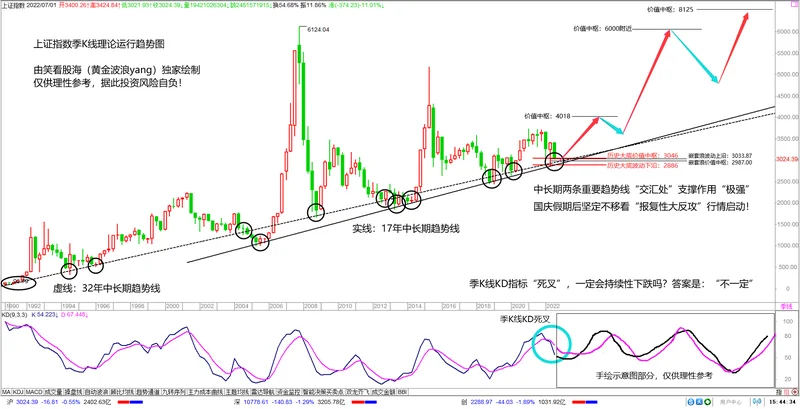So, the Shanghai Stock Exchange has found religion. Or, at least, it’s learned the new ESG gospel that every fund manager on Wall Street chants in their sleep. On December 16, they’re rolling out a “revised” SSE 180 Index, complete with a shiny new halo of Environmental, Social, and Governance righteousness. They’re adding new rules for liquidity, for weighting, for “industry balance”—all the boring technical jargon designed to make it sound like serious people did serious work.
But the headline act, the one they want you to focus on, is the ESG filter.
From now on, any company with an ESG rating of "C or below" gets the boot. It’s like a nightclub finally deciding to enforce a dress code, but the only rule is "no ripped t-shirts." Everyone else, no matter how sketchy, is still welcome to the party.
Let’s be real. This isn't a moral awakening. This is a marketing campaign. The index, stuffed with China’s old-guard, state-adjacent behemoths in finance and utilities, was looking a little… dusty. A little too 20th-century. How do you make a portfolio of slow-moving giants sexy for the global capital sloshing around looking for a virtuous home? You slap a green sticker on it.
This is a bad idea. No, 'bad' doesn't cover it—this is a five-alarm dumpster fire of corporate spin. They’re hoping the river of dumb money that follows ESG mandates will flow their way, without them having to change much of anything fundamental. It's the financial equivalent of a coal plant buying a few carbon credits and calling itself a climate champion. And the fact that new ETFs are already lining up to track this thing proves the gimmick is working.
The Old Guard in Green Clothing
Let's take a look under the hood of this supposedly reformed index, shall we? The top holdings are a who's who of the Chinese establishment. We're talking Kweichow Moutai, the absurdly valuable maker of high-proof liquor that’s basically the official celebratory drink of the Party. What, exactly, is the high-minded social governance principle at play there? Then you have Ping An Insurance and China Merchants Bank. Big finance. The bedrock of the state-guided economy.
These companies aren't going anywhere. The new ESG rule is just a convenient way to trim the ugliest fat around the edges. It’s designed to exclude the most flagrantly irresponsible companies, the ones that are a PR nightmare waiting to happen. But kicking out the C-listers doesn't magically make the B-listers saints. It just raises the floor from "abysmal" to "mediocre." So what does an ESG score from a state-influenced ratings agency even mean in the first place? And how low is the bar for a "C" rating anyway? We're given no transparency on that, offcourse.

The whole thing feels like putting a fresh coat of green paint on a rusty old battleship and calling it a sailboat. It might look a little nicer from a distance, but it's still the same heavy, slow-moving machine underneath. It ain't about changing course; it's about changing the brochure.
They're touting the index's dividend rate—3.48% over the last year—as if that's some kind of coup. It's a decent yield, sure, but it’s also a sign of mature, low-growth companies. The backtested performance is even less inspiring. An annualized yield of 4.94% over the last decade? You could have thrown your money at a boring S&P 500 index fund and done far, far better with less political risk. They want us to believe this is a seismic shift, but in reality…
Chasing the Dragon's ETF Tail
The real story here isn’t about virtue; it’s about asset flows. The Huaan SSE 180 ETF, the oldest and biggest fund tracking this index, has been around since 2006. It’s a 21 billion yuan beast. And its manager, Mr. Xu Zhiyan, has actually done a decent job, beating the benchmark with a 7.37% annualized return since inception.
So if the biggest fund tracking the index was already outperforming it, what's the problem this "revision" is trying to solve? It’s not about returns. It's about perception. It's about creating a new narrative to sell more products.
I get it. Every financial product needs a story now. You can't just sell a collection of stocks anymore. You have to sell a concept. You have to sell "The Future of Asia" or "Disruptive Innovation" or, in this case, "Ethical Chinese Blue-Chips." It’s the same reason every yogurt in the supermarket now has to be "probiotic" and every granola bar has to be "plant-based." The labels change faster than the ingredients.
The expectation is that this ESG-washing will bring in a flood of "incremental capital." And it probably will. There are legions of portfolio managers out there with mandates to fill and boxes to check. Does this index now check the "China" box and the "ESG" box? You bet. Will they look any deeper? Probably not. Then again, maybe I'm the crazy one. Maybe a slightly less-polluting, marginally more ethical index is better than nothing. But I doubt it. It just feels like a distraction.
Just More Lipstick on the Pig
Look, let's call this what it is: a cynical rebranding exercise. The Shanghai Stock Exchange isn't trying to save the world. It’s trying to save its own relevance by co-opting the language of social responsibility to attract foreign investment. By simply weeding out the absolute worst actors, they get to slap a "responsible" label on a portfolio still dominated by state-backed financial firms and a liquor company. Don't let the new packaging fool you. It's the same old product, just with a little green bow on top.
